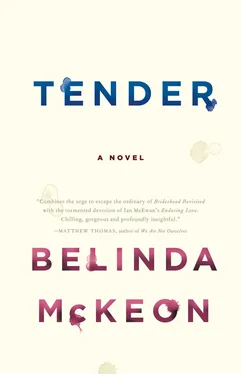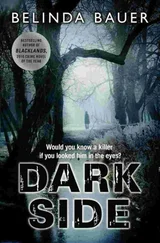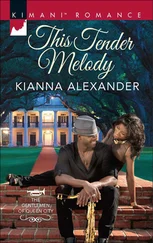He was watching her, a smile on his lips, and the girls were laughing.
“Happy anniversary?” she said. “What anniversary?”
“Ah, Reilly,” he said, and he came over to her, clambering across Lisa’s legs. His breath was sharp with beer. “The day after your exams finished last year was the first day we met. I was just telling the girls.”
“About you and your pea fetish,” Zoe said. “And your hangover from trying to fall asleep in Conor Moran’s arms. State of you.”
“You’re an eejit, Reilly,” James said, and he put his arms around her, squeezing her, and her breath was gone. “I’m so glad I met you,” he said, over her shoulder. And then, much more quietly, into her ear so that the others could not catch it, “I’m sorry about everything.”
“Awwww,” Lisa was saying beside them; the sound of her had almost drowned out James’s murmured words. But he had said them; Catherine saw from his eyes now, as he pulled back from her, that he had said them.
“James—”
But Zoe was scrambling to her feet now, a commotion. “Hey, Liam! Liam! LIAM IS HERE!” she shouted, jumping and waving as though to a rescue helicopter. “Liam! LIAM! We’re OVER HERE!”
“Yeah, I think he hears you,” James said. “I think all the Liams can hear you.”
“There’s only one Liam I’m interested in,” said Zoe, as Liam, his cheeks pink and his hair a tangle and his smile wide and delighted at the sight of them, ambled over.
* * *
And they talked about everything, the two of them. Once they got going, there was nothing that they did not seem to cover.
They were drunk, Catherine knew, which helped — but still.
They stretched out on the grass, not beside each other but opposite each other, his feet alongside James’s shoulders and James’s feet alongside his, and the evening blazed down on them, and they talked on for hours. The others wove in and the others wove out, and Catherine was among them, the weavers, the contributors, the consulted, but the spine of it was the pair of them, laid out across from one another. Their voices climbing easily across the way.
* * *
And later, Zoe’s argument, set out loudly and firmly and drunkenly.
* * *
Because she had heard it was the only place in town to go if you wanted to really, really dance.
Because it was a Saturday night, and on a Saturday night, everywhere else would be awful.
Because Conor and Emmet had at some stage joined them, and Conor and Emmet were making outraged noises about the idea of it, but Conor and Emmet would go where everyone else was going—“I resent that!” Emmet said — and it would be such fun—“I resent that!”—to watch them squirm.
Because Zoe had heard that the DJs there always played Madonna, a lot of Madonna, and Madonna was precisely what this occasion called for.
Because none of them — could this be possible? — not even Aidan, had ever been there before.
Because the sun had gone down.
* * *
Because James.
That was the actual reason.
Because Liam.
* * *
And maybe there were other gay clubs in Dublin, but this was the one everyone knew about. This was the one everyone used, after all, in jokes.
* * *
And Catherine could go with them or she could go home now, alone, to a house that would be empty, because Amy was here, and Lorraine and Cillian were out elsewhere; she could go back to a house that would come at her every instant with new panics, new versions of what was happening a mile away, of what was being forged.
That was the choice.
And as they crossed Front Square, somebody was whooping and somebody was turning cartwheels on the cobblestones, and somebody was hoisted, wobbling, onto Aidan’s shoulders, and someone was puking, and someone was laughing, and the blue face of the clock was looking, watchful, down on them all. Seen it all before, it would say, if it could say, but it was a clock.
Tick-tock
Tick-tock
“The fucking drink better be cheap in this place,” she heard Emmet grumble behind her. “That’s all I can say.”
* * *
The drink was not cheap.
All these men, so handsome, so smiling—
(All these women, smiling that way too.)
“Fantastic,” Aidan kept saying, looking around as though in wonder, looking over the railings to the dance floor below. “Fantastic.”
Emmet, leaning back stiffly against the purple walls: “Do you want binoculars, Murphy?”
* * *
Purple walls, and long velvet curtains, and velvet couches in bright reds and blues, and gilt edging on all of the furniture — everywhere was gilt, everywhere, and all of this oversized faux-Baroque, so that you could see the irony, you could see the confidence, you could see the gleeful wink and nod.
Tiny, twinkling lights strung down from the ceiling, all over the stairs.
And downstairs, in the lower part, was where the music they could hear now had its center; the bass was reaching up here, full and determined and languid, but the heart of whatever was happening was down there, still out of sight, and the tune playing was one that Catherine could not place just now, but she knew it, she did—
(“Jesus Christ,” said Emmet, as another guy in a white vest went past, smiling at him.)
“You love it, Doyle,” said Catherine, without enthusiasm; her eyes were on James. James, who was bundling, with Amy and Lisa and Zoe, onto one of the huge velvet couches. James who was falling into the cushions now, all elbows and knees and giddy laughter, something manic in the look of him—
Something scared.
So, safe enough yet?
That was what Catherine caught herself thinking. That if he was scared, if he was nervous, about being here, that then she was safe enough yet. That she might not be losing him just yet; that he might not be ready to go from her, after all—
In the next breath, despising her mind for the things it said to her. The places it allowed itself to go.
(But, safe enough yet?)
* * *
Conor and Emmet lasted twenty minutes, and then they left for the Stag’s.
* * *
“Look at us,” Catherine said to James. They were standing in front of a wall covered entirely in tiny shards of mirror. Everything glinted in the countless tiny mirrors; everything shivered.
“So many of us,” James said, and he was waving.
“Come on! ” said Zoe, and she was grabbing them, marching them downstairs, and they were rushing, then, into the opening swell of the song that began with seagull calls, and with waves crashing, and with the mock-up chords of a tune that had come to mean a smiling bride on her father’s arm, and as they all clattered downstairs to the dance floor, there was the sound of the cymbals, and the keyboards, and as the light soared and swirled over everyone, over all of the upraised arms, there was the sound of the men’s chorus, low and even and stern.
And there was the first word. The word pulling them together.
And then their feet hit the floor.
* * *
Bodies pulsing everywhere. Voices roaring out every syllable. Chests and hips and shoulders—
Lips and hands and tongues—
And the music like a shimmering, oceanic wall.
* * *
And this, this, now, this was a really brilliant song—
Everyone on the dance floor shouting for joy as they recognized it.
The people dancing on the stage actually dropping down, for a moment, to their knees—
* * *
Singing of mystery, of the mystery that life was.
* * *
And no, but really, had all these songs always been so brilliant, all along? These songs that had been only tinny radio rackets in your childhood, and only things you thought embarrassing in your teenage years, and now — now they were genius. Now they were perfect.
Читать дальше












